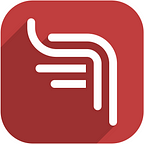Using Magpi for Global Health Research
Although Magpi is now used for many purposes in many sectors, it was born from a need to do global health research and evaluation in the field (did you know the original name of Magpi was “EpiSurveyor” = “epidemiological survey tool”). So even today, one of the things that we’re most enthusiastic about is when we learn about practitioners and clinicians and researchers using Magpi mobile data collection to advance health science all around the world.
Of course, Magpi’s model — allowing users to simply sign up for free at www.magpi.com and start using the software, without any meetings or approval — means that in most cases we don’t know when someone is using the software. But once in awhile Google helps us find great examples of Magpi use for health purposes, and below are three of our favorites:
Assessment of Surgical Needs in Nepal Using Mobile Devices: Mobile Data Collection in a Developing Country
Eugenia E. Lee and colleagues from Johns Hopkins School of Public Health conducted a successful country-wide assessment of surgical needs in Nepal in February of 2016, noting that some respondents were more receptive than others to surveys done on mobile devices, rather than paper: “cultural sensitivity remains an important component of introducing mobile devices to population survey, especially those that address vulnerable topics such as surgical need.”
Pneumococcal carriage among children after four years of routine 10-valent pneumococcal conjugate vaccine use in Brazil: The emergence of multidrug resistant serotype 6C
Felipe P.G.Neves and his team of researchers needed an efficient way to evaluate the success of the introduction of 10-valent pneumococcal conjugate vaccine in Brazil. In 2014 they conducted a cross-sectional study among children under the age of six in Niterói, RJ, Brazil. They found that the bacterial types covered by the vaccine were effectively eliminated — but they also noted emergency of multi-drug resistant serotypes, and concluded that ongoing surveillance for resistant organisms is called for.
Community-based cholera surveillance by volunteers with mobile phones: A case study from Western Area, Haiti
In 2014–15, A. Kongelf of the Norwegian Red Cross (along with colleagues from the Haiti Red Cross, International Federation of the Red Cross, and Oregon State University) “to design and imple-ment a digital community-based surveillance (CBS) system to understand whether non-health trained volunteers could accurately detect and report cases of suspected Cholera in their communities, using simple mobile technology.”
Given the environment, and the basic phones available to their Haitian volunteers, a mobile app would never have worked. Kongelf et al utilized Magpi’s iSMS (interactive SMS) system so that volunteers could send in their data using any phone at all.
The results were encouraging:
Our results show positive proof of concept for disease surveillance by volunteers with mobile phones, and the ability, for the first time, to detect cholera in rural areas that are often missed in formal surveillance.
This critical work, which will have long-term positive impact on surveillance activities around the world in future, is one of many activities using Magpi within the Red Cross system — one of our longest-term user groups.
Mobile-Based Nutrition and Child Health Monitoring to Inform Program Development: An Experience From Liberia
Our next example comes from Agnes Guyon, Ariella Bock, Barbara Knittel (all JSI) and Laura Buback (UNICEF), who describe “the development and application of a mobile-based nutrition and health monitoring system, which collected monitoring data on project activities, women’s nutrition, and infant and young child feeding practices in real time.”
This project, starting in 2012, built on JSI’s previous successful experience in using Magpi. The choice to continue with Magpi came because:
While many different digital data collection tools and applications existed, the LAUNCH project selected Magpi because it was user-friendly, easy to learn, required little to no programming experience to use, and was relatively inexpensive. Furthermore, Magpi had successfully been used in other JSI projects in Liberia and this experience proved that it could effectively avoid many of the challenges associated with paper-based data collection and that it was feasible for use in low-resource settings.
And not surprisingly the team found the same benefits during this implementation:
Integrating routine data collection into project field staff responsibilities enables the data to be collected in a more affordable and efficient manner with limited start-up costs.
The use of mobile phones and a cloud-based server allowed for real-time quality data collection in otherwise hard-to-reach project locations by reducing the time and resource burden of paper forms and data entry.
See the latest examples
Click this link to Google Scholar to see the most recent research produced using Magpi.
Tell us about YOUR Magpi use
Are you using Magpi to do great global health work (or anything else fantastic)? We’d love to hear from you. Just click the Contact link at the bottom of this page.
Originally published at Magpi.
